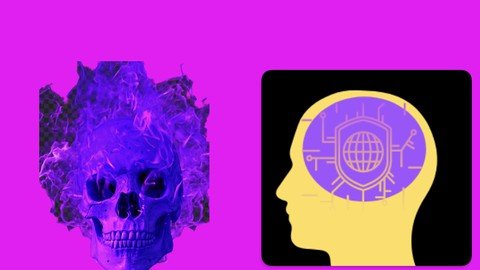Mastering Algorithms Efficient Problem Solving | Free Download

Free Download Mastering Algorithms Efficient Problem Solving | Free Download
Published 6/2023
MP4 | Video: h264, 1280x720 | Audio: AAC, 44.1 KHz
Language: English | Size: 441.09 MB | Duration: 0h 38m
Unlocking the Power of Data Structures and Algorithms for Faster, More Efficient Solutions
What you'll learn
Understand the fundamental concepts of graph theory, including types of graphs, vertices, edges, and paths.
Analyze and implement depth-first search and breadth-first search algorithms for traversing and exploring graphs.
Compute the shortest path between two vertices in a graph using Dijkstra's algorithm and understand its implementation and complexity.
Identify strongly connected components and compute topological order in directed graphs, and understand the algorithms used for these computations.
Requirements
Learners should have access to a computer with a reliable internet connection and a web browser to access course materials and complete programming assignments.
Description
'Welcome to "Mastering Algorithms: Efficient Problem Solving"!In this course, we will delve into the fascinating world of algorithms and data structures, and learn how to apply them to solve complex problems more efficiently. We will begin by exploring the concept of minimum spanning trees and how they can be used to minimize costs in network design. We'll then dive into Huffman encoding and how it can be used to compress data, as well as Horn formulas and how they can be used in logical reasoning.We'll also cover a range of other important topics, including set cover, shortest paths, longest increasing subsequences, edit distance, knapsack problems, chain matrix multiplication, depth-first search in undirected and directed graphs, strongly connected components, topological order, and breadth-first search. Throughout the course, we will emphasize the importance of efficient problem-solving techniques and explore how to optimize algorithms and data structures to minimize time and space complexity. We will also cover priority queue implementations and how they can be used in Dijkstra's algorithm, as well as how to handle negative edges in shortest path algorithms.By the end of this course, you will have a solid understanding of a range of algorithms and data structures, and be equipped with the skills to tackle complex problems with greater efficiency and confidence. So, whether you're a beginner or an experienced developer, join us on this exciting journey to mastering algorithms and efficient problem-solving.1. Set aside dedicated time for the course and commit to completing it.2. Familiarize yourself with the course materials, including lectures, assignments, and resources.3. Take notes and actively engage in the course material to solidify your understanding of the topics.4. Practice implementing algorithms and data structures in your own projects to reinforce your learning.5. Seek help from the course community or instructor if you encounter any challenges or have questions.6. Regularly review the course materials to reinforce your learning and stay up-to-date with new concepts and techniques.7. Upon completion of the course, integrate the newly acquired skills and knowledge into your work or personal projects to maximize their impact.Remember, mastering algorithms and data structures takes time and practice, but with dedication and effort, you can become a proficient problem solver and take your skills to the next level. Good luck and enjoy the course!
Overview
Section 1: Introduction
Lecture 1 Introduction
Section 2: Exploring Graphs with Depth-First Search (DFS)
Lecture 2 DFS
Section 3: Breadth First Search (BFS)
Lecture 3 BFS
Section 4: Exploring Graph Algorithms: An Introduction to Graph Theory
Lecture 4 Distances
Section 5: Navigating Graphs with Edge Lengths: Strategies and Techniques
Lecture 5 Lengths on Edges
Section 6: Uncovering Structure with Strongly Connected
Lecture 6 SCCs
Section 7: Efficiently Solving Pathfinding Problems
Lecture 7 Priority Queues
Section 8: Exploring Graph Theory: Solving the Shortest Path Without Cycles Problem
Lecture 8 Shortest Paths in the Presence of Negative Edges
Section 9: Unraveling Topological Ordering: Theory and Practice
Lecture 9 Topological Ordering
Section 10: Discovering Strongly Connected Components: Algorithms and Analysis
Lecture 10 Strongly Connected Components
Section 11: Mastering Single Source Shortest Paths: Algorithms and Applications
Lecture 11 Single Source Shortest Paths
Section 12: Checkpoint
Lecture 12 Conclusion
Section 13: Finding the Critical Path in a Project Schedule using Shortest Paths in DAGs
Lecture 13 Shortest Paths in Graphs
Section 14: Cracking the Code: An Introduction to Huffman Encoding
Lecture 14 Huffman Encoding
Section 15: Optimizing Resource Allocation with Set Covers: A Greedy Algorithm Approach
Lecture 15 Set Covers
This course is intended for learners who have a basic understanding of programming and data structures and are interested in learning more about graph theory and its applications. The course is particularly suited for students pursuing a degree in computer science, mathematics, or engineering, as well as software developers and data scientists who work with complex data structures and algorithms.
Homepage
https://www.udemy.com/course/mastering-algorithms-efficient-problem-solving/
⚠️ Dead Link ?
You may submit a re-upload request using the search feature.
All requests are reviewed in accordance with our Content Policy.
In today's era of digital learning, access to high-quality educational resources has become more accessible than ever, with a plethora of platforms offering free download video courses in various disciplines. One of the most sought-after categories among learners is the skillshar free video editing course, which provides aspiring creators with the tools and techniques needed to master the art of video production. These courses cover everything from basic editing principles to advanced techniques, empowering individuals to unleash their creativity and produce professional-quality content.

Comments (0)
Users of Guests are not allowed to comment this publication.